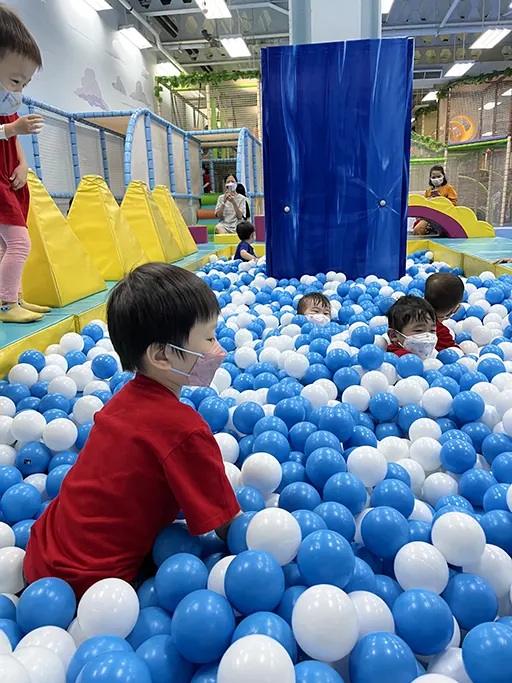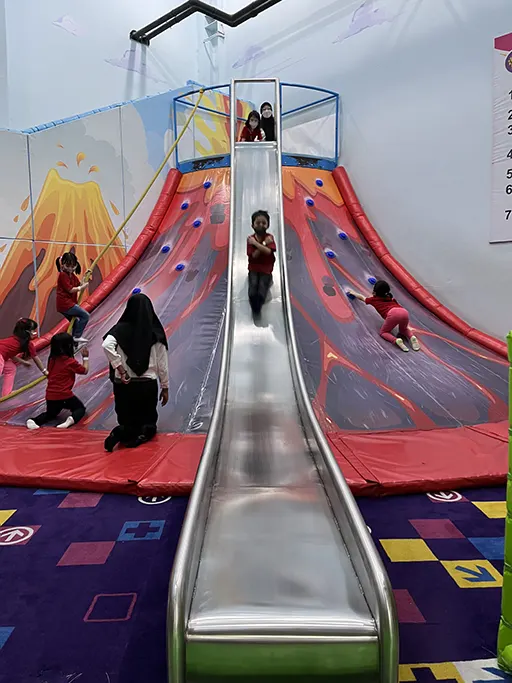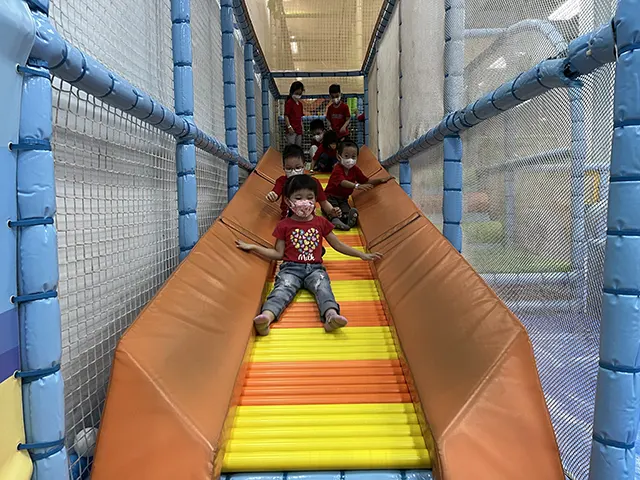Isn’t it time to get out of the classroom and have fun? Leave the routines at school and explore the new playground to improve students’ gross motor skills. Gross motor activities are important to everyday physical activities like walking, running, throwing, lifting, climbing, etc. It’s fun and exciting for children, right?
In order to connect with our goal in a better way we chose to go on a field trip to Chipmunk Playland, located at Pakuwon Mall. On November 25th, 2022, Preschool and Kindergarten students of Metta School played enthusiastically.
They can choose many interactive equipment and sensory activities, such as a trampoline to improve students’ self-esteem, a volcano slide that helps develop their sense of balance and courage, a spider web net that encourages students to stand on their tiptoes, stretch out their arms and legs and work out their muscles.

On the playground, develop not only their gross motor skill but social interaction, as well. There are five ways that children improve their social skills while playing on the playground:
- Taking turns using equipment
When a playground feature can only accommodate one child at a time, children must learn to wait their turn. Waiting, taking turns and sharing are all skills they can develop through playground activities. It will also help them practice patience and develop the ability to show empathy.
- Practicing communication
On the playground, children can practice skills like greeting, initiating conversation, listening, and waiting their turn to talk.
- Collaborating and working together
Playground settings are an excellent place for children to practice working together. Cooperation requires adaptability, compromise and the ability to work with another person toward a common goal. Collaborating on the playground can give kids a chance to practice their social skills like communicating, listening, reading verbal and nonverbal cues, and solving problems. Working as a team can also help children learn to take turns and handle disappointments.
- Apologizing and understanding conflict situation
Sometimes in social situations, conflict occurs. It can happen on the playground if one child bumps into another by accident, or if someone doesn’t want to share or take turns. These are excellent opportunities to practice problem-solving, conflict resolution, and apologizing. A child with healthy problem-solving skills will be able to react appropriately to anger, insults, or aggressive behavior. They will be able to settle disagreements through compromise and come up with a solution that works for everyone.
The physical and social benefits of play are more obvious. However, there are also subtle emotional changes in your child’s well-being that may not be as recognizable, yet are still vitally important.

Children experience many other positive emotional impacts when they’re allowed the freedom to play on a playground. Playground play benefits children because of it:
- Boosts self-confidence and self-esteem as they master challenging playground structures
- Allows them to retain a sense of control unavailable in many other parts of their lives
- Lowers tendencies to misbehave or bully, as kids’ attention is diverted with more positive activities
- Teaches them how to deal with challenges in a healthy way
Pictures prove the fun and enjoyment they had. 😊😊
By: Yuva Stephany
Source:
Improving Social Skills on the playground.
https://playworld.com/blog/improving-social-skills-on-the-playground/
The importance of playgrounds & Play for Child Development. https://littletikescommercial.com/blog/importance-of-playgrounds-for-children/?lang=can



